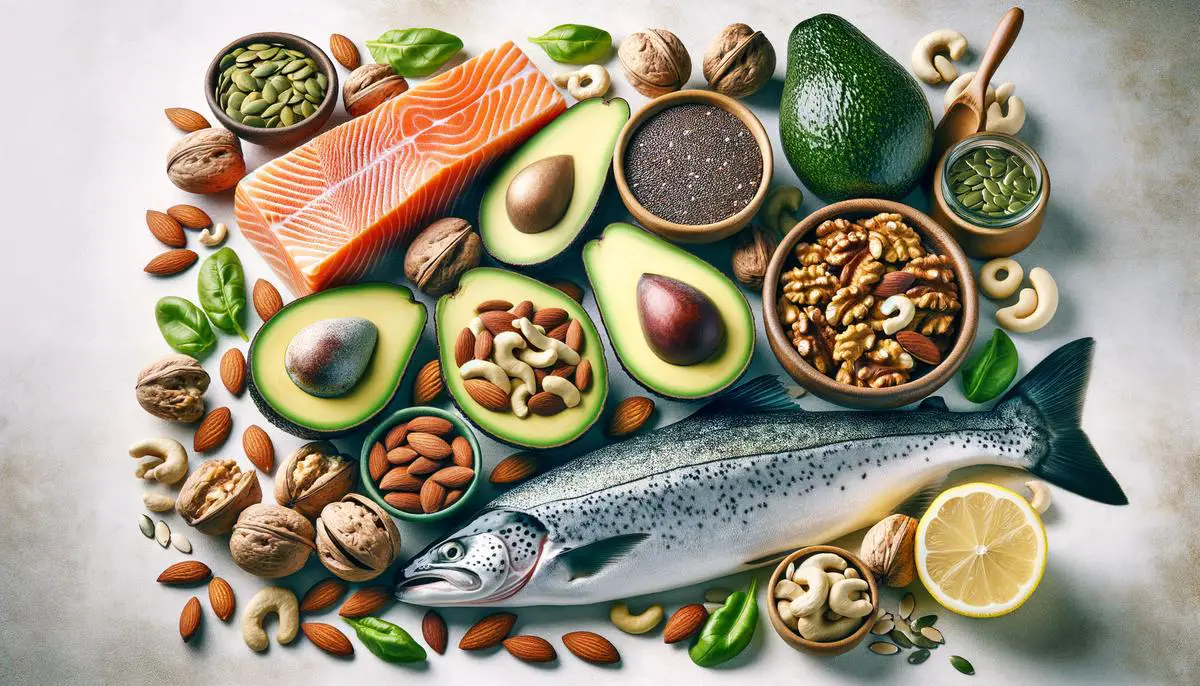
Maintaining a healthy heart is essential for overall well-being, and the foods we choose to eat play a significant role in achieving this goal. Fruits, vegetables, whole grains, and healthy fats are not just parts of a balanced diet; they are key players in supporting heart health. This article explores how incorporating these nutritional powerhouses into our daily meals can benefit our cardiovascular system and contribute to long-term health.
Fruits and Vegetables for Heart Health
Fruits and vegetables are vital components of a diet that supports heart health, a fact well-supported by myriad scientific studies. These foods are low in calories while being rich in essential nutrients and fiber, all of which contribute to maintaining a healthy heart. Specifically, the fiber found in fruits and vegetables helps reduce blood cholesterol levels, thus decreasing the risk of heart disease. Additionally, these plant-based foods are excellent sources of antioxidants — substances that protect your cells from damage. Antioxidants like vitamin C, vitamin E, and beta carotene have been linked to a lower risk of coronary heart disease. Moreover, the presence of minerals such as potassium in fruits and vegetables aids in blood pressure regulation, a critical factor in heart health.
Incorporating a variety of fruits and vegetables into one’s diet is a proactive strategy to reinforce heart well-being. The different colors and types of these plant foods offer a wide range of nutrients. For example, leafy green vegetables like spinach and kale are rich in vitamin K, which can protect your arteries and promote proper blood clotting. Similarly, berries are famed for their high levels of anthocyanins and flavonoids that enhance heart health through their anti-inflammatory and antioxidant properties. This nutritional diversity is not only a safeguard against heart disease but may also enrich the diet with flavors and textures that keep eating habits both enjoyable and sustainable. The ease of integrating vegetables and fruits into every meal highlights their role as cornerstone elements for a heart-healthy diet regime.

Whole Grains and Heart Health
Whole grains stand as a pivotal component in the quest for heart health, bolstered by an impressive array of nutrients that includes fiber, vitamins, and minerals notably beneficial to the cardiovascular system. Unlike their refined counterparts, whole grains retain all parts of the seed — the bran, germ, and endosperm — each contributing uniquely to its healthful properties. The intake of whole grains has been consistently linked to a reduced risk of heart disease, primarily due to their ability to improve cholesterol levels and lower blood pressure. Specifically, the soluble fiber found in whole grains plays a crucial role in binding cholesterol in the digestive system, facilitating its elimination from the body and thereby preventing its accumulation in the bloodstream. This process naturally contributes to the stabilization of blood cholesterol levels, a critical factor in minimizing the risk of heart attacks and strokes.
Additionally, whole grains introduce a significant source of antioxidants and phytochemicals, compounds which combat oxidative stress — a formidable adversary in heart disease’s complex etiology. These antioxidant properties, coupled with an inherent anti-inflammatory effect, have a synergistic impact on heart health. The regular consumption of whole grains is also associated with healthier arteries and a lower incidence of hypertension, attributed partly to the magnesium and other minerals present that aid in vascular relaxation. Integrating whole grains into one’s diet emerges as a straightforward yet profoundly impactful strategy. Options like oats for breakfast, brown rice or quinoa as meal bases, and whole-grain breads or pastas provide accessible pathways to enhance heart well-being, reflecting whole grains’ versatility and indispensability in a heart-conscious diet.

Healthy Fats and Cardiovascular Disease
Venturing beyond the realm of leafy greens and whole grains, when considering heart health, the type of fats consumed plays a pivotal role. Monounsaturated and polyunsaturated fats stand out as the heroes in this domain, offering a bevy of benefits that underscore their significance in a heart-healthy diet. Found in a variety of foods such as avocados, nuts, seeds, and certain oils (think olive and canola), monounsaturated fats are lauded for their ability to improve blood cholesterol levels. This favourable adjustment not only reduces the risk of heart disease but also stabilizes heart rhythms, a crucial factor in maintaining heart health. Similarly, polyunsaturated fats, including omega-3 and omega-6 fatty acids, found abundantly in fatty fish like salmon, trout, and in flaxseeds, make a strong case for their inclusion. The omega-3s, in particular, are celebrated for their profound impact on heart health: from lowering triglycerides and reducing blood clotting to diminishing the risk of strokes and heart failure.
The magic of these healthier fats doesn’t stop with just lowering bad cholesterol levels; they contribute to the overall nurturing of the cardiovascular system. For instance, omega-3 fatty acids extend their benefits to lowering inflammation throughout the body—a significant perk as inflammation is a key player in heart disease. These fats also aid in regulating blood pressure, an essential element in preventing heart strain and promoting longevity. Including these beneficial fats in one’s diet can be seamlessly achieved through simple dietary adjustments—swapping out butter for olive oil, choosing fish over red meat a couple times a week, or tossing a handful of walnuts or almonds into your salad. As the cornerstone of a robust heart-healthy regimen, these fats, when incorporated mindfully and paired with an overall balanced diet rich in fruits, vegetables, and whole grains, embody a proactive step toward nurturing one’s heart and enhancing overall well-being.

Embracing a diet rich in fruits, vegetables, whole grains, and healthy fats is more than just making good food choices; it’s about investing in the health of your heart. Each meal presents an opportunity to nourish your body with what it needs to thrive. By focusing on these essential food groups, you’re taking proactive steps towards a healthier heart and a happier life. Remember, the best time to start caring for your heart is now.



